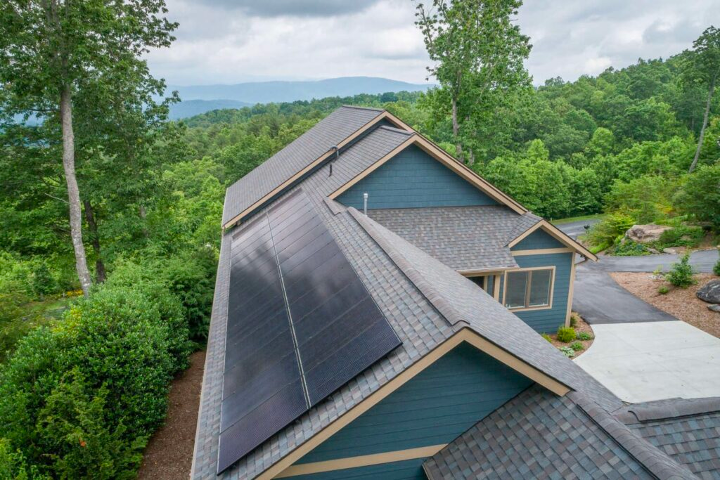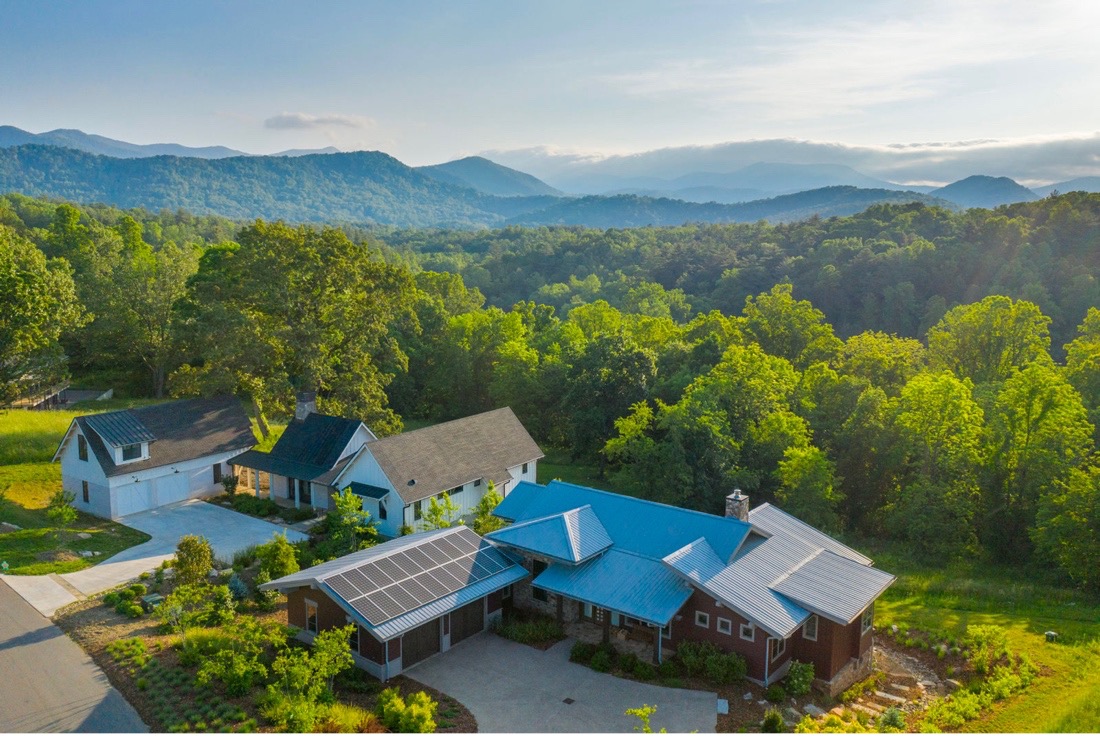Member Highlight: Sugar Hollow Solar— Helping to Grow the Clean Energy Workforce of Tomorrow
NCSEA had the opportunity to sit down with Clary Franko, Chief Operating Officer at Sugar Hollow Solar, to learn more about its leadership growing North Carolina's rooftop solar market. Specifically, we learned about Sugar Hollow’s priorities in workforce development through its participation in the Steps4Growth program.

Positive Impacts from Farmlands to Rooftops
Sugar Hollow Solar was founded in Asheville, NC in 2010 by two cousins, Phelps Clarke and Doug Ager. Between both sides of the family runs nearly four generations of relatives focused on environmental stewardship in the Blue Ridge Mountains of Western North Carolina (WNC). Their elders include former-Congressman James Clarke and former-Representative John Ager who left a legacy deeply rooted in looking after the land and its people. Inspired by an upbringing exploring the forests and farmlands of WNC, Phelps and Doug decided to create a renewable energy company with a vision “to do right by the community and our planet, while building a successful business that could exist for the long haul.”
Today, Sugar Hollow is the region’s largest locally owned solar company. The company itself is focused on residential, commercial, and governmental solar projects, though the team also installs battery storage, electric vehicle chargers, and provides other technical services.
Clary Franko, who is their Chief Operating Officer with a background in environmental advocacy, explains that she was drawn to Sugar Hollow because of an alignment with her core values. As she put it, “My professional experience in the advocacy world was shockingly similar to what was called for in a mission-driven solar company— it’s about finding ways to motivate people to take action, make a positive change, and have a greater impact on the planet.”
For Sugar Hollow, as Clary explains, the company’s focus starts and ends with the customer. The solar installer welcomes feedback to support transparency and lasting, trusting relationships. Franko also said that Sugar Hollow is currently working on its B Corp Certification, which measures the entire social and environmental impact of an operation. By doing so, she hopes to demonstrate the company’s commitment to responsible internal and external practices to support an inclusive, regenerative economy.
Sugar Hollow is also in the process of launching its own equity, diversity, and inclusion efforts to reach a broader segment of the population. And some of that is entailed in their advocacy work focused on more proactive state policy to break down barriers to entry for rural counties and low- to- moderate income households, including new programs and financing models like solar leasing. “Working in collaborative coalitions with NCSEA and other partners is key to making legislative change in the state,” she explained.
Additionally, Sugar Hollow is planning to participate in the Steps4Growth program later this year to add additional capacity to their team to help further grow the rooftop solar market in WNC. “How do we serve more people and collaborate with efforts across the industry?” Franko asked. "The Steps4Growth program is not only focused on workforce development, but it is also making sure that this fast-growing industry includes communities that have not historically been part of the clean energy movement.”

Sugar Hollow Solar & Steps4Growth
Steps4Growth is focused on implementing impactful workforce development programs across the energy efficiency, renewable energy, clean vehicles, and grid and resiliency sectors. The $23.7 million grant was awarded by the US Economic Development Administration’s Good Jobs Challenge and will be administered over the next four years by the Center for Energy Research & Technology at North Carolina Agricultural & Technological State University (CERT at NC A&T). At its core, the program is designed to bridge the gap that currently exists between industry and workforce development programs by training qualified clean energy workers.
It’s important to note that Steps4Growth is also aimed at bringing more funding to North Carolina’s Tier 1 and 2 counties (those that are classified as economically-distressed or in need of resource allocation by the NC Department of Environmental Quality). Franko explained that the majority of counties in WNC, the market in which Sugar Hollow engages in on a day-to-day basis, meet these criteria.
As part of the company’s participation in Steps4Growth, Sugar Hollow is planning to bring on two apprentices in August with the potential for them to transition to full-time, good-paying careers. Franko also highlighted that clean energy is going to require a diversity of jobs across the board to be successful and Sugar Hollow’s growing team is no exception. “I think a lot of times when we think of workforce development, our minds go straight to installers. Those positions are undoubtably important, though a clean energy economy is also going to require individuals skilled in communications, accounting, sales, project management, and beyond!”
Franko is excited about the opportunity to participate in the program and watch the lasting impacts on North Carolina’s energy transition unfold. She also said that Sugar Hollow hopes to offer more apprenticeships in the future once the ball is rolling. “I’m grateful for the folks that had the knowledge, connections, and foresight to spearhead the Steps4Growth program,” she said. “Investing in workforce development is crucial and Sugar Hollow is excited to participate with a network of dedicated partners.”
Raising Awareness Across the Industry
Sugar Hollow is urging other companies in the industry to start thinking about their roles in workforce development programs. Franko emphasized that not only does hiring North Carolinians benefit local communities, but it also has the potential to bolster a much-needed workforce. From ambitious decarbonization goals (like North Carolina’s HB951 calling for a 70 percent emissions reduction by 2030 and a carbon-neutral electricity sector by 2050) to aging master electricians, she said that today is the perfect time for new individuals to get involved in the clean energy economy.
Franko first became aware of Steps4Growth after she had heard about the recently announced program on a call with the NC State University Clean Energy Technology Center gauging industry workforce development priorities. During the conversation, the Center asked about the challenges that Sugar Hollow and other solar installers faced when hiring new staff members.
"The conversation was valuable from the start because I hadn't been in many other spaces where ‘competitors’ were collaborating on shared issues that they experienced,” explained Franko. “It became clear that the Steps4Growth program was attempting to enable more collaboration in North Carolina’s solar industry. It has the potential to advance a more diverse and thriving workforce across the clean energy industry.”


